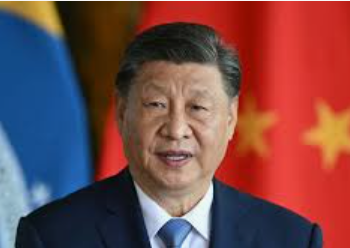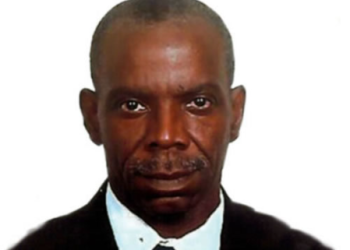By Abimbola Adelakun
Just three years ago, then-governor of Katsina, Aminu Masari, lamented how some bandits deceived him into negotiating peace deals with them twice and still did not let up on violence. He said he was fooled more than once because those bandits swore to him on the Qur’an. Even those released from jail based on their agreement would not only shun the terms of peace but also go on to become leaders of their own bandit cells. Reading that years ago, I thought Nigeria was a comical state and that it said a lot about Masari’s understanding of his religious virtues that he could be beguiled into thinking that the bandits who routinely abduct, pillage, and murder would retain enough integrity to honour an agreement simply because they swore on a sacred symbol. After the first time, he still failed to notice that the moral instrument that bound them into a socially cohesive unit had long dissolved, and religion as a guaranteed manipulative tool had been rendered ineffective.
Recently, in the same Katsina, the communities of Faskari Local Government made headlines for embarking on the same discredited path of making peace with bandits. Where the government has failed spectacularly, the victimised people—with lesser powers and even fewer options—think they might succeed. To have to take the same route suggests they have despaired that the country still has either the power or even the will to redress their situation.
In this confined space, their best option seems to be making peace with their oppressors by reverting to pre-modern modes of governance, where you exchange fealty to a raiding overlord for self and communal preservation. This present arrangement likely involves their paying tributes as taxes to the bandits. It is hard to blame the communities imperilled by the bandits for subordinating themselves under their suzerainty. Governance in Nigeria is too centralised, too distant, and, in fact, too unimaginative to be responsive to the yearnings of rural communities. People who have borne the brunt of the dysfunctional structure of the country are—like virtually everyone else who has had to become their own municipality—turning to self-help.
As if it was not already bad enough that the official nation-state is being undermined in such arrangements, the bandits attended the peace meeting fully strapped with their ammunition. They took their seats with imperial majesty, wordlessly flaunting their attainment of equal footing with the government that is supposed to hold the monopoly of weapons and the prerogative to do violence. Some of the bandits even rose to give a speech, stating their cause and promising their captives “freedom of movement”. They not only got to moralise their cause, but they even assumed their legality by offering the people what is supposed to be their inalienable right!
The spectacle of that gathering was shameful, cringey, and painful. If it was not bad enough that these criminals were undeservedly platformed, the occasion was so festive that the bandits remarked on the crowd turnout. The lunatics have taken over the asylum; we must all be disturbed.
Meanwhile, some of these bandits are on the government’s “most-wanted” list, but those supposed to find them are frivolously pursuing news publisher Omoyele Sowore through the courts for referring to the President as a “criminal”. The country is burning, but the preeminent intelligence (sic) organisation in the country has allowed itself to be baited into a contest of wills with a citizen.
Nigeria is in such a weakened state that communities beg killers to be their government. Imagine how traumatised the victims must have been to see those who have killed scores of them negotiate “peace”. These are the realities that deplete trust and confidence in institutions, not the silliness that the DSS is pursuing. Any effort to restore institutional integrity that does not involve the surrender of these guys, disarmament, trial, and subsequent imprisonment is a waste of time. If you cannot get them to submit themselves to the state, then what use is the existence of your institutions?
Peace deals are desperate stopgap measures, but they hardly work. As Governor Masari once found out after being serially duped, these bandits are prone to deceit; trying to hold them to their words is futile. And why should they be? These are killers; what integrity can they still be harbouring that would not long have dissipated after taking out lives? They swore by the Quran before the governor because they needed to extract some money from him as well as get him to release their compatriots, and that is about where their religion ends.
With communities like the Faskari local government, who are already beaten down by repeated spates of violence, there would be no such haggling since the people are likely too poor to offer cash. In a situation of uneven power dynamics, what is termed a civil transaction is a mere surrender. The peace deal will be negotiated at the cost of their land, resources, and even humanity.
These bandits are people whose lives have become meaningful through their coercive acts of violence. Without armed banditry, they would otherwise be unengaged youths marking time at the same spot. Northern Nigeria (like the rest of the country anyway) has a disproportionate army of disenfranchised youths perpetually stuck at a juvenile phase of life; the life that is yet to start, but which is also passing them by. That is why clerics like Sheikh Ahmad Gumi, who say those bandits should not be provoked after the peace deal, are amusing. Did the people who attended the peace meeting while strapped with weapons look like they were ready to start farming simply because they negotiated with the communities they had troubled? That the wolf lives within the grassland does not presuppose it will take a diet of vegetables. To ask people like that to merely surrender their arms is to require them to give up the very cause that has made their otherwise drudge existence acquire a purpose. So, this is a problem that is by no means solved or even resolvable through such initiatives. Neither the communities that have been “pacified” into compliance nor Nigeria as an entity will find peace like this.
The biggest shame in all of these is how it seems self-evident that the government itself has given up on addressing the root cause of this violence and is content to leave poor people to their fate. Some of the banditry problems are foundational and require the government to urgently address the problems of mass education, mass poverty, and mass disenfranchisement. Our political class is so invested in the next elections and what they would gain out of the forthcoming power arrangements that the actual duty of governance, such as guaranteeing security, bores or distracts them. As the communities that bear the brunt of this dysfunctional arrangement were arranging peace in Katsina, bandits elsewhere were busy doing their thing in Zamfara, where they abducted 40 (or 55 people, depending on which media outlet you read). This cycle seems endless, and there is never going to be peace with people whose thirst for blood has become the remaining source of meaning for their lives.













































